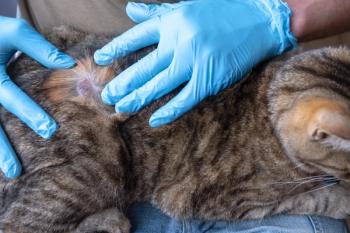
Commentary: Why women are leaving the veterinary profession
Many female veterinarians opt to raise a family full time rather than face gender-based inequities in practice.
My operating strategy as a veterinary practice owner is to try to foster a culture of growth and profit. I want my associate to see real earning potential and real opportunity for growth that is meaningful to him or her-which may be more than monetary. My guiding principle is, “Don't be somebody who my wife and I wouldn't want to work for.” I was an associate for a number of years, as was my wife. We significantly preferred working for practice owners who practiced good-but considerate-business.
Many practice owners struggle to keep great associates, especially female associates. The reasons for this are not exclusive to women, but women have some motivations to leave practice that men may not share, or that may be stronger for women than for men.
My wife, Jenn, is an example. The financial and professional benefits of Jenn working in veterinary practice were significant-but the pursuit of challenges outside of the profession was more significant. Jenn had personal goals in addition to being a full-time parent that put working even part time off the table for her. No reasonable amount of compensation would have kept her in the profession.
For many women, raising a family is ostensibly their primary reason for leaving the profession. That choice is more attractive to women because it lets them leave behind the tangible and intangible devaluation many female associates experience. It's no secret that men get paid more than women in veterinary medicine, regardless of years of experience or ownership status. So leaving the profession gets female associates away from being paid less money and garnering less respect for doing the same thing as male veterinarians. Plus, leaving the profession for family offers a societal approval and respect that many associates-male and female-fail to find in practice.
We all have clients who respect us in word and deed-seeking our advice, heeding it, referring their friends to us, leaving great Internet reviews and bringing treats into the clinic. Not too long ago, one of my clients who frequently declines my first recommendations due to cost showed up with a plate of brownies. No holiday, no euthanasia-just wanted to let us know she had thought of us as she went about her daily life and wanted to thank us for the care we've provided for her pets.
Wow.
Sincere, unsolicited expressions of how much your job performance means go a long way in this field. But we all also have encounters with clients who don't value us-and opting out of such encounters by declining the responsibilities of ownership or by working part time (or not at all) is more socially acceptable for women than men. Women get kudos for taking abuse from preschoolers, but when it's a client who makes unreasonable demands, issues ultimatums and throws temper tantrums, somehow the veterinarians are to blame for the drama and the loss of revenue to the clinic.
Many female associates-highly trained professionals producing nearly $500,000 a year for the clinic-can relay experiences of being thrown under the bus by the boss to placate a client (who might be worth a few thousand dollars a year). Well, you reap what you sow. Practice owners who undervalue women plus a segment of the public that undervalues female medical service providers equals female veterinarians wanting out of the profession.
Dr. Ryan Gates writes for Dr. Eden Myers' website justvetdata.com. Dr. Myers contributed to this article.
Newsletter
From exam room tips to practice management insights, get trusted veterinary news delivered straight to your inbox—subscribe to dvm360.






